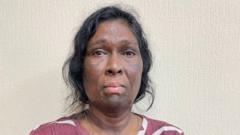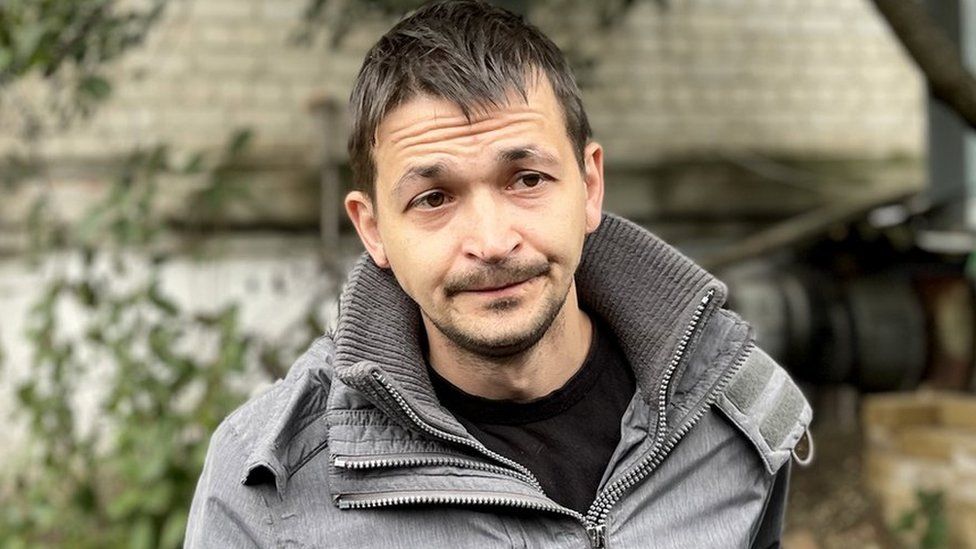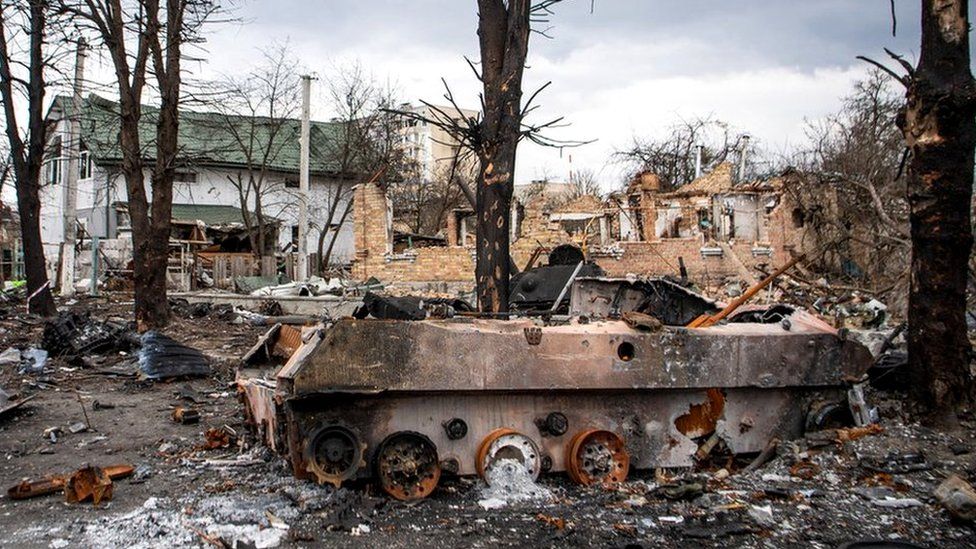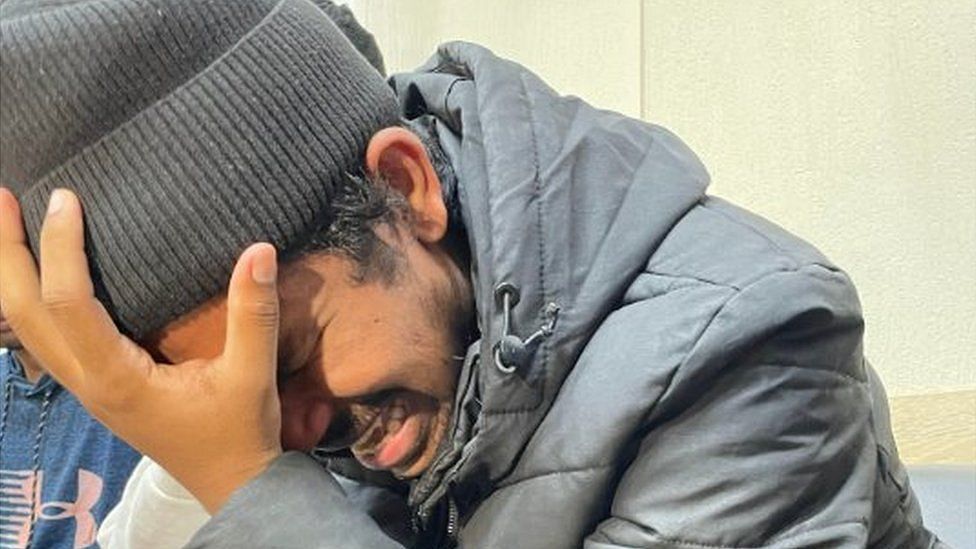
Ukraine’s recapture of the city of Izyum has brought multiple allegations of atrocities under Russian occupation. Among the accounts emerging is that of a group of Sri Lankans held captive for months. Here, they tell their story.
“We thought we would never get out alive,” says Dilujan Paththinajakan,
Dilujan was one of seven Sri Lankans captured by Russian forces in May. The group had just set out on a huge walk to safety from their homes in Kupiansk, north-eastern Ukraine, to the relative safety of Kharkiv, some 120km (75 miles) away.
But at the first checkpoint they came across, they were captured by Russian soldiers. The Sri Lankans were blindfolded, their hands tied, and taken to a machine tool factory in the town of Vovchansk, near the Russian border.
It was the start of a four-month nightmare which would see them kept prisoner, used as forced labour, and even tortured.
WARNING: You may find some of the details below about abuse distressing.
The group had come to Ukraine to find work, or study. Now, they were prisoners, surviving on very little food, only allowed to use the toilet once a day for two minutes. On the occasions they were allowed to shower, that too was restricted to just two minutes.
The men – mainly in their 20s – were all kept in one room. The only woman in the group, 50-year-old Mary Edit Uthajkumar, was kept separately.
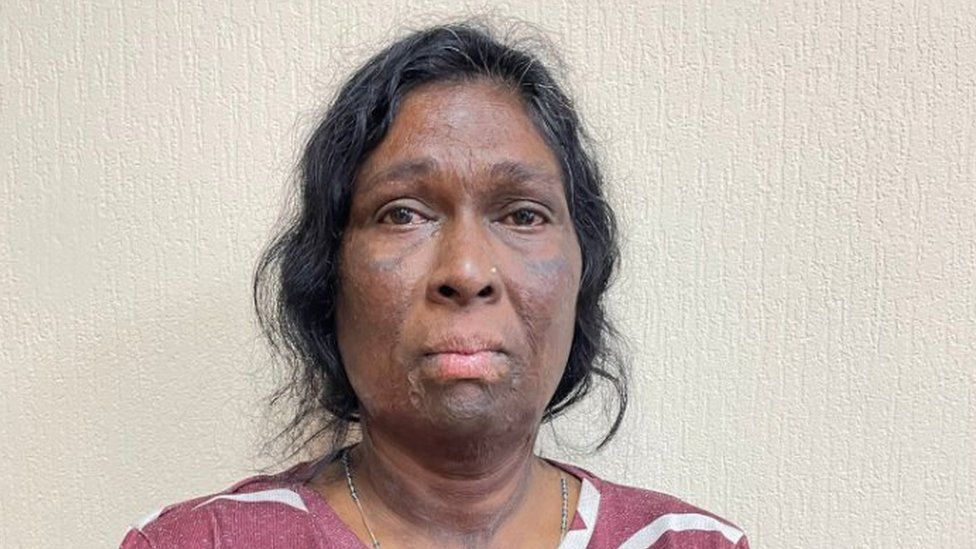
“They locked us in a room,” she said “They used to beat us when we go to take shower. They don’t even allow me to meet others. We were stuck inside for three months.”
Mary, her face already scarred by a car bomb in Sri Lanka, has a heart condition, but didn’t receive any medicine for it.
But it was the impact of the solitude which really took its toll.
“Being alone, I was so tense,” she says. “They said I was having mental health issues and gave me tablets. But I didn’t take them.”
Others have been left with even more visible reminders of what they had endured: one of the men removed his shoes to show his toenails had been torn off with pliers. A second man reportedly also suffered that torture.
The group also spoke of being beaten for no apparent reason – of Russian soldiers who would get drunk and then attack them.
“They hit me across the body many times with their guns,” said 35-year-old Thinesh Gogenthiran. “One of them punched me in the stomach and I was in pain for two days. He then asked me for money.”
“We were very angry and so sad – we cried every day,” Dilukshan Robertclive, 25, explained.
“The only thing that kept us going was prayer – and family memories.”
Russia has denied targeting civilians or committing war crimes, but the Sri Lankans allegations come alongside many other reports of atrocities committed by Russian occupying forces.
Ukraine has been exhuming bodies from a burial site in forest near Izyum, some of which show signs of torture. And Ukrainian President Volodymyr Zelensky has said “more than 10 torture chambers have already been found in the liberated areas of Kharkiv region, in various cities and towns”.
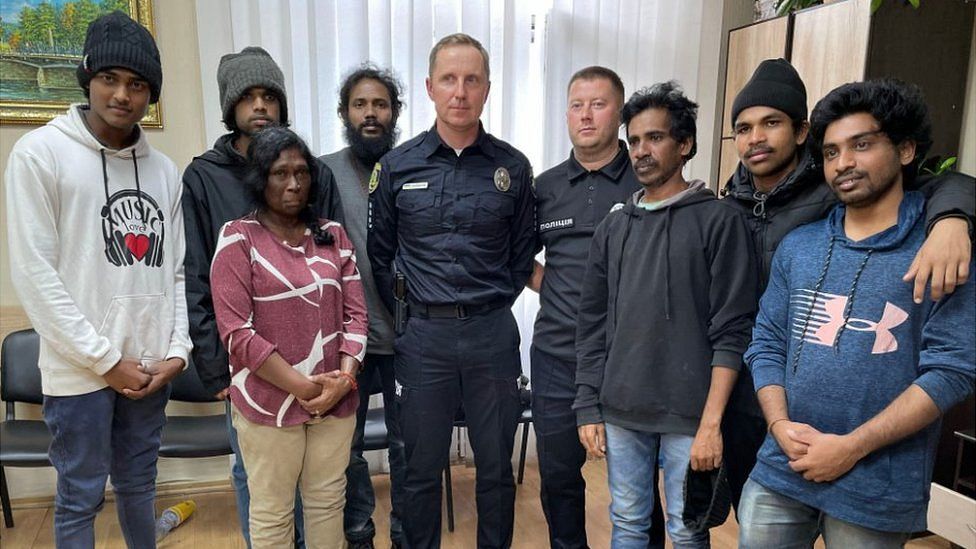
Freedom for the seven Sri Lankans finally came when the Ukrainian military began retaking areas in eastern Ukraine earlier this month – including Vovchansk.
Once again, the group was able to begin their walk towards Kharkiv. Alone, and without their phones, they had no way to contact their families.
But finally, their luck changed: someone spotted them along the way and called the police. One officer offered them their phone.
The moment Ainkaranathan Ganesamoorthi, 40, saw his wife and daughter on the screen he broke down in tears. Other calls followed, more tears flowed. Eventually, the group huddled around the surprised police chief, engulfing him in a hug.
The group have been taken to Kharkiv, where they are getting medical attention and new clothes, while sleeping in a rehabilitation centre with a pool and gym.
“Now I feel very, very happy,” says Dilukshan, with a broad smile.

War in Ukraine: More coverage
- ANALYSIS: How can the world cope without Russian oil and gas?
- ON THE GROUND: What weapons are being supplied to Ukraine?
- READ MORE: Full coverage of the crisis


